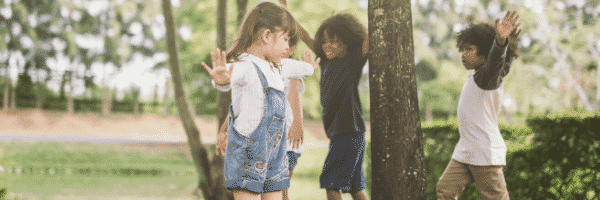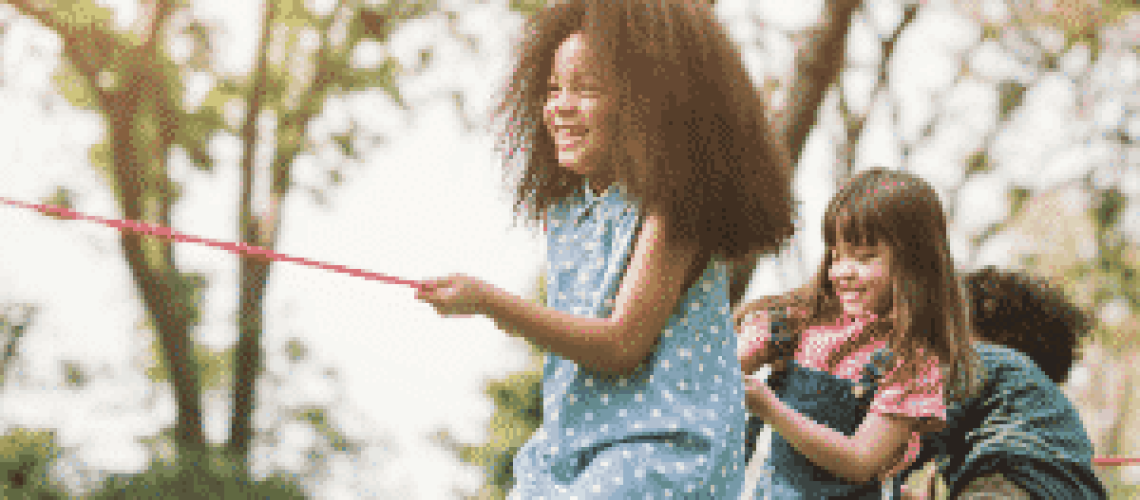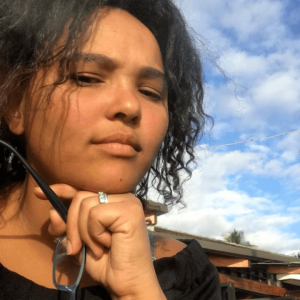
I am writing this in the wake of the death of George Floyd and the heartening reaction globally of people taking a stand against these tragic losses of Black lives.
It is an eye-opening time for many, a humbling time for many others and also a call to action.
This subject is dear to my heart as I was a child born in Apartheid South Africa. I was brought to Australia just 12 weeks later because my existence as a child born to an Australian father and Xhosa mother was not legally recognised there at the time.
My parents decided that Australia was a slightly better place to raise a child.
I am lucky enough to have mostly experienced covert rather than overt racism but it still kept me very small for a long time. I didn't dare draw attention to myself and the colour of my skin for fear of making it worse.
Leaning into empathy as a parent, I became more vocal in speaking out against injustice towards children, parents and persecuted groups but I would still somewhat shy away from race where I could.
So while this time in history has made me slightly more vocal, it still feels hard to write about.
Race is an uncomfortable topic for a lot of people but it is an important one.
Most parents believe their children will just inherit their values. A lot of us believe children just don't see differences because children are inherently good and prejudice is bad.
But children need good information too.
It is our job as parents to be intentional about breaking the bonds that oppress people.
This means we need to talk about differences early and often.
We need to make sure our bookshelves, television and media, and the outings we go on as families, represent the wide world.
If our children ask us about current events, we need to sit down and have open and age-appropriate conversations. And we need to acknowledge that having a choice about whether or not to have these conversations is a privilege.
Bringing Race to the Table: Getting Started
These topics can be hard and our biggest enemy in all this will be shame. Shame will turn our good, clear, thinking into defensive responses and behaviour. Or we might respond by shutting down, or deciding it’s too painful to do anything at all. So I think the first thing we need to do is to get lots of listening time through a good Listening Partnership.
Where to begin? For people of colour, Listening Time can be spent:
- Unpacking our earliest memories of racism
- We may need to rage about the people who uphold the system, and what it has done to us and those we love
- We may mourn the loss of a childhood we deserved but didn't get
For people who identify as White or otherwise privileged::
- Unpacking your memories of your family’s positions and feelings about race
- Noticing and shedding feelings about the first time you knew racism was wrong
- Shedding feelings about racially charged things you regret having said or done in the past
If you feel resistant to discussing race and privilege with your children, a few listening exchanges on this topic will make a big difference.
Using Hand in Hand Tools as you Help Your Children with Issues of
Race and Privilege
For those with children of colour you might expect there to be a lot of Staylistening, especially as you have more intentional conversations about race. Those tears will be very fortifying.
As you listen to your hurt and crying child, your caring can heal the hurt.
Your caring clears away the emotional damage. You support them to grieve the hard moment, and they become free to feel confident again.
Because power imbalance is central when it comes to race, rights and injustice, it's also good to add in some power-reversal Playlistening to the mix. We can use this type of play to restore some of that lost power.
Family pillow fights where the children always win are a good place to start. Follow the giggles whenever you hear them.
For families identifying as white or otherwise privileged, play can also be a great tool to demonstrate and explore racial inequality.
This Is How I Used Play With Kids To Highlight Race
There was an incident of exclusion at my child's school. There are not many people of colour in this area so really it's unsurprising that children are confused by what is different. (Hence why we need to be deliberate about filling their world with examples).
I went into the class of 7- and 8-year-old children and I started with a game where we had to find three other people with the same colour hair, then four other people around the same height, and two other people with the same colour eyes. The children darted towards those they identified.
Then I said “Find three other people who are as kind as you are!”
They were less quick to scurry then so I told them to sit down and close their eyes.
I said, “Put your hands up if you are fast at running!”
Hands shot up. I asked them various different questions.
“Hands up if you think you are funny,”
“Hands up if you thinking having green eyes makes you faster at running,”
“Hands up if having brown hair makes you funnier.”
Then I invited them to open their eyes as I animatedly started to admonish myself for having forgotten to ask them the most important question of all, which was “Can you see me?”
Of course, they said they could, although I checked a few times more!
I explained then why my skin colour was different from most of theirs and then I told them how, because of that, when I was born, my parents were told I didn't exist. I said, “They didn't ask if I was fast or funny or kind, they just took one look at me and said I couldn't exist!”
We all lamented that this seemed a very silly idea!
Then we read Sulwe by Lupita Nyong'o, which is an exploration of skin colour and learning to love it, and we talked about what we can't see that makes people beautiful. We finished with a dance – a great way to shake off any heaviness.
This felt like a really wonderful and age-appropriate way to discuss these things and the children and I had a really great time with it.
We are lucky we live in a world with such great resources at our fingertips to help us have these essential conversations with our children. I encourage you to find resources that resonate with you.
When we bring these issues to our children, they are more able to have these conversations with their peers and hopefully also stand up and speak up as they become empowered.
The wonderful thing about the Hand in Hand Parenting Approach is that it is rooted in empathy and when you have empathy you have a strong desire to fight for what is right and good. I believe that you, good parent, believe in equality and in passing on this value to your children.
This is important work that needs to be done and I thank you from my family to yours for doing it.
I also want to honour, acknowledge and hold in deep tenderness those who do not have any of these choices. I recognise the privilege that comes in seeking out how to do this work instead of just having to live in the pain of these realities.
I hope this collective awakening continues and that it results in the changing of many hearts and minds.
Black Lives Matter and they always have.
Read It's Time to End Racism, Build Safer Communities and Help Each Other Heal to find out how Hand in Hand is working to increase diversity and support issues of race.

